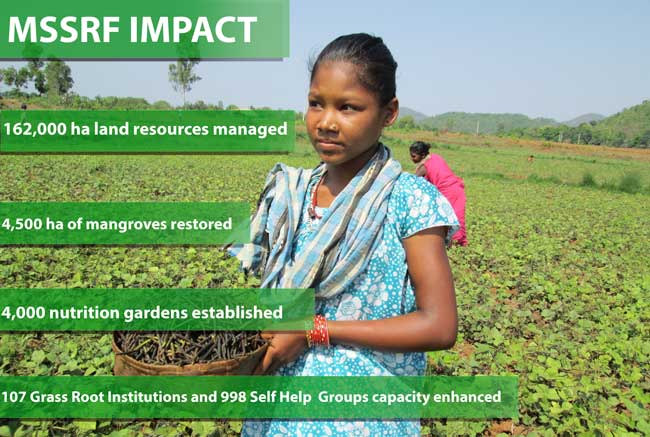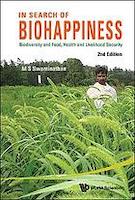Learn from M.S. Swaminathan – a world renowned scientist (1925-2023) – how biological diversity contributes to public health, people’s livelihood and environmental security in addition to food security: his call on Indian citizens to use and share resources in a more sustainable and equitable manner; outlining the long journey from the 1992 Earth Summit to a commitment to foster inherited knowledge through India’s Biodiversity Act and Genome Saviour Award; an award intended to reward those who are “primary conservers” – guardians of biological diversity.
Tips
- watch the above video message (Biodiversity) by world renowned scientist Prof M.S. Swaminathan
- for more video contents, visit his foundation’s YouTube channel: MSSRF CAbC WAYANAD
- peruse the MSSRF website https://www.mssrf.org in order to understand its founder’s long-term vision just as the local context where programmes are being implemented
M.S. Swaminathan [1925-2023], the eminent crop geneticist who fused plant breeding science with keen administrative skills to produce bountiful harvests that ended famine and steadily transformed India into one of the world’s top growers of wheat and rice, died on Thursday in Chennai, India. He was 98. His daughter Nitya Rao confirmed the death.
Known around the world as the father of India’s Green Revolution, Dr. Swaminathan helped ward off starvation for hundreds of millions of people through his research, along with training programs he developed to teach farmers how to cultivate more productive varieties of wheat and rice.
For more than seven decades, Dr. Swaminathan steadily built one of history’s most formidable careers in crop science and food production. He got his shoes muddy in farm fields and strained his eyes in laboratories on three continents as a young scientist. He was recruited to serve in senior executive positions at Indian government agencies and agricultural research institutes, and at advisory boards at home and abroad.
He also took part in prestigious commissions in many countries. […]
The events that set Dr. Swaminathan’s path to global renown occurred in the 1960s. As a plant geneticist at the Indian Agricultural Research Institute, he learned about the exceptional yields from new and sturdier wheat varieties that were being tested in Mexico by the American scientist Norman E. Borlaug. […]
In 1987, Dr. Swaminathan won the first World Food Prize, an important agricultural award established by Dr. Borlaug. Javier Pérez de Cuéllar, the United Nations secretary general at the time, called Dr. Swaminathan “a living legend who will go into the annals of history as a world scientist of a rare distinction. […]
It was one of more than 100 significant honors that Dr. Swaminathan earned from India and around the world for his science and humanitarian efforts. He used the $200,000 World Food Prize to start the M.S. Swaminathan Research Foundation. Based in Chennai in the state of Tamil Nadu, not far from where he was raised, the foundation is one of India’s most prominent centers of innovation, applying science and technology to assist women and rural development. […]
In the 1990s and early 2000s, he came under attack from environmental groups for encouraging industrial farm practices that relied on expensive and polluting fertilizers and pesticides, and for supporting the development of genetically modified crops.
Dr. Swaminathan and his allies countered that he had devoted his career to promoting crop production practices that were safer and less polluting – a system of farming that he called the “evergreen revolution.”
He described these practices – water-conserving, genetically diverse and energy-reducing – in his 2010 book,”From Green to Evergreen Revolution,” one of many he published. The benefits of his strategy, he argued, were ecologically safer planting methods that were affordable for small farmers. […]
Dr. Swaminathan was fond of telling stories about his childhood, when he said he learned about tragedy and resilience. He recalled that his father, who died when he was 11, told him once:
“The ‘impossible’ exists mainly in our minds. But given the requisite will and effort, great tasks can be accomplished.”
He also learned about inspiration and public service. He was a devoted supporter of Mohandas Gandhi, who visited his family’s home. In the fall of 1946, three years after millions died in a famine in Bengal, Dr. Swaminathan was so moved by Gandhi’s appeal to “the god of bread” to bless every home and hut that he switched his university studies from medicine to agricultural research.
After graduating from a leading agricultural college in Tamil Nadu, he joined the Indian Agricultural Research Institute in New Delhi and then took up postgraduate studies in plant genetics in the Netherlands and in England, where he earned a Ph.D. in genetics from the University of Cambridge in 1952. […]
Source: “Father of India’s Green Revolution who helped defeat famine” by Keith Schneider (Sameer Yasir contributed reporting), Obituary, New York Times
URL: https://www.nytimes.com
Date (international print edition): 30 September 2023
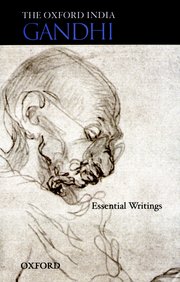
Library copies: Worldcat.org >>
Gandhian social movement >>
“Air is free to all but if it is polluted it harms our health… Next comes water… From now on we must take up the effort to secure water. Councillors are servants of the people and we have a right to question them.” – Mohandas K. Gandhi, Ahmedabad address on 1 January 1918; quoted by his grandson, Gopalkrishna Gandhi, in On another New Year’s Day: Mahatma Gandhi’s ‘khorak’ a 100 years ago | Learn more >>
What is the Biodiversity Act?
An Act to provide for conservation of biological diversity, sustainable use of its components and fair and equitable sharing of the benefits arising out of the use of biological resources, knowledge and for matters connected therewith or incidental thereto. […]
The Central Government shall develop national strategies, plans, programmes for the conservation and promotion and sustainable use of biological diversity including measures for identification and monitoring of areas rich in biological resources, promotion of in situ, and ex situ, conservation of biological resources, incentives for research, training and public education to increase awareness with respect to biodiversity. […]
Where an offence or contravention under this Act has been committed by a company, every person who at the time the offence or contravention was committed was in charge of, and was responsible to, the company for the conduct of the business of the company, as well as the company, shall be deemed to be guilty of the offence or contravention and shall be liable to be proceeded against and punished accordingly.
Source: “The Biological Diversity Act, 2002 and Biological Diversity Rules, 2004” (promulgated by the Government of India, 5 February 2003)
URL: http://nbaindia.org/uploaded/act/BDACT_ENG.pdf
Date visited: 3 March 2021
How to implement the Biodiversity Act across India?
Local bodies take charge of “People’s biodiversity registers” (PBR)
The National Biodiversity Authority (NBA) is set to tell the National Green Tribunal that it created 243,499 biodiversity management committees (BMC) and 95,525 people’s biodiversity registers (PBR) as of January 2020, a source said. The green bench is hearing a case on the full implementation of the Biodiversity Act, 2002. BMCs are created for “promoting conservation, sustainable use and documentation of biological diversity” by local bodies across the country, according to the NBA. […]
The new system [people’s biodiversity registers (PBR) with ‘comprehensive information on availability and knowledge of local biological resources’] will also protect intellectual property rights over traditional knowledge; information will not be shared without consent.
Source: “Most biodiversity panels now in place, National Biodiversity Authority to tell NGT” by Ishan Kukreti (Down to Earth, 18 February 2020)
URL: https://www.downtoearth.org.in/news/india/most-biodiversity-panels-now-in-place-national-biodiversity-authority-to-tell-ngt-69334
Date visited: 3 March 2021
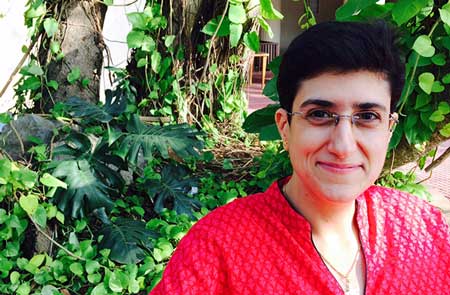
Biodiversity fostered by tribal communities >>
Historically, India’s environmental movement has revolved around wildlife conservation — tigers, leopards, elephants — yet there was little inclusion of sustainability in our models of development. […]
Our task is to retain urban biodiversity and augment it. One of our projects started off as growing native indigenous trees in Mumbai, working with private landowners and corporations. […]
We’ll teach about edible landscaping, butterfly gardens, sensory gardens, vertical landscapes, and urban bee keeping. We’ll need these concepts as the population rises and the land area shrinks. […]
By and large, the middle class and the educated are changing and becoming an important voice. They are the voice demanding change and action from the government.
Source: Rashneh Pardiwala in “Why It’s Hard to ‘Change Mindsets’ on Environmental Protection Among India’s Elites”; interview with Asia Blog on environmental education at the Centre for Environmental Research and Education (CERE Mumbai, founded in 2003)
URL: https://asiasociety.org/blog/asia/interview-why-its-hard-change-mindsets-environmental-protection-among-indias-elites
Date visited: 3 March 2021
In 1997, MSSRF established its first Community Agro-biodiversity Centre in Wayanad district of Kerala to work on ‘community biodiversity management’ by promoting a coalition of the concerned, notably, government departments and voluntary organizations for the conservation of the genetic wealth of Wayanad and surrounding region. | Learn more >>
Read a report in the Hindustani Times (22 November 2018): “Tribesmen bag plant genome saviour award” (for conserving cereals, millets, spices, tubers, vegetables)
Medicinal Plants Used by Traditional Healthcare Practitioners of Dominant Tribes of Koraput in Odisha
The paper documents the medicinal plants growing naturally in the forests used in traditional healthcare system by major tribal communities inhabiting four southern districts of Odisha, India. In the tribal villages, traditional healthcare practitioners (THPs) are responsible for collection, processing, and administration of herbal medicines acquired through inherited knowledge. We recorded 294 medicinal plants, out of which 34 plants are commonly used by nine dominant tribes though the mode of preparation, plant parts used, and the treating ailments vary within the tribes. Malaria, diarrhea, and skin infections are the most commonly occurring diseases treated with a variety of herbal medicines and the tribes depend strongly on the THPs. Although several medicinal plants utilized in primary healthcare have been recognized, their conservation, sustainable use, and benefit sharing is lacking. A garden of medicinal plants was established to protect the traditional knowledge of tribal communities for Access and Benefit Sharing (ABS) under the Biodiversity Act (BD Act), 2002, empowering with modern and mass cultivation methods and market linkage for economic benefi ts and as a part of conservation measures of these depleting resources. – Publication date: 2013
Download site (account required):
https://indianmedicine.eldoc.ub.rug.nl/65725/
In Search of Biohappiness deals with methods of converting agro-biodiversity hotspots into happy spots. This involves concurrent attention to conservation, and sustainable and equitable use. Bioresources constitute the feedstock for the biotechnology industry. The aim of the book is to promote an era of biohappiness based on the conversion of bioresources into jobs and income in an environmentally sustainable manner. The scope of Biohappiness extends to include all aspects of conservation such as in situ, ex situ and community conservation, and also covers conservation issues relating to mangroves and other coastal bioresources, whose importance has grown with the emerging possibility of significant sea-level increase from global warming. Concrete examples of how local tribal families have taken to the establishment of gene, seed, grain and water banks in villages — thus linking conservation, cultivation, consumption and commerce in a mutually-reinforcing manner — are provided in this book. Since the first edition, biohappiness is now universally considered to be the major objective of research and development in the field of biodiversity. This edition brings the position up-to-date, and furthers the cause of biohappiness through the inclusion of a new section on its latest developments.
Source: “In search of biohappiness : biodiversity and food, health and livelihood security by M.S. Swaminathan” (World Scientific, 2015)
URL: http://www.worldcat.org/oclc/910845554
Date visited: 25 April 2021
The M S Swaminathan Research Foundation (MSSRF) was established in 1988 as a not-for-profit trust. MSSRF was envisioned and founded by Professor M S Swaminathan with proceeds from the First World Food Prize that he received in 1987. The Foundation aims to accelerate use of modern science and technology for agricultural and rural development to improve lives and livelihoods of communities. | Learn more>>
Source: https://www.mssrf.org/content/medicinal-plants-used-traditional-healthcare-practitioners-dominant-tribes-koraput-odisha
Date accessed: 10 January 2019
[Bold typeface added above for emphasis]
Up-to-date reports by Indian experts and journalists
Search tips
Combine the name of any particular state, language or region with that of any tribal (Adivasi) community.
Add keywords of special interest (music, poetry, dance just as health, sacred grove and biodiversity); learn about the rights of Scheduled Tribes such as the “Forest Rights Act” (FRA); and the United Nations “Declaration on the Rights of Indigenous Peoples”, “Universal Declaration of Human Rights”, “women’s rights”, or “children’s right to education”.
Ask a question that includes “tribal” or “Adivasi”, for instance: “Adivasi way of life better?” (or “tribal way of life worse?”)
Specify any particular issue or news item (biodiversity, bonded labour and human trafficking, climate change, ecology, economic development, ethnobotany, ethnomedicine, global warming, hunter-gatherers in a particular region or state, prevention of rural poverty, water access).
For official figures include “scheduled tribe ST” along with a union state or region: e.g. “Chhattisgarh ST community”, “Himalayan tribe”, “Scheduled tribe Tamil Nadu census”, “ST Kerala census”, “Particularly Vulnerable Tribal Group Jharkhand”, “PVTG Rajasthan”, “Adivasi ST Kerala”, “Adibasi ST West Bengal” etc.
In case the Google Custom Search window is not displayed here try the following: (1) toggle between “Reader” and regular viewing; (2) in your browser’s Security settings select “Enable JavaScript” | More tips >>
Note: hyperlinks and quotes are meant for fact-checking and information purposes only | Disclaimer >>
List of websites covered by this Google custom search engine
Academia.edu (platform for academics to share research papers) – www.academia.edu
Archive.org – https://archive.org
Centre for Science and Environment – https://www.cseindia.org
Current Conservation – https://www.currentconservation.org
Development and Cooperation (D+C) https://www.dandc.eu
Down To Earth (India) – www.downtoearth.org.in
India Environment Portal – www.indiaenvironmentportal.org.in
Harnessing Nature Magazine – https://harnessingnature.online
Mongabay-India – https://india.mongabay.com
M S Swaminathan Research Foundation – www.mssrf.org
Navdanya (protecting India’s biodiversity based food heritage) – https://navdanya.org
Third World Network (Penang, Malaysia) – https://twn.my
The Shola Trust (nature conservation in the Nilgiri region) – www.thesholatrust.org
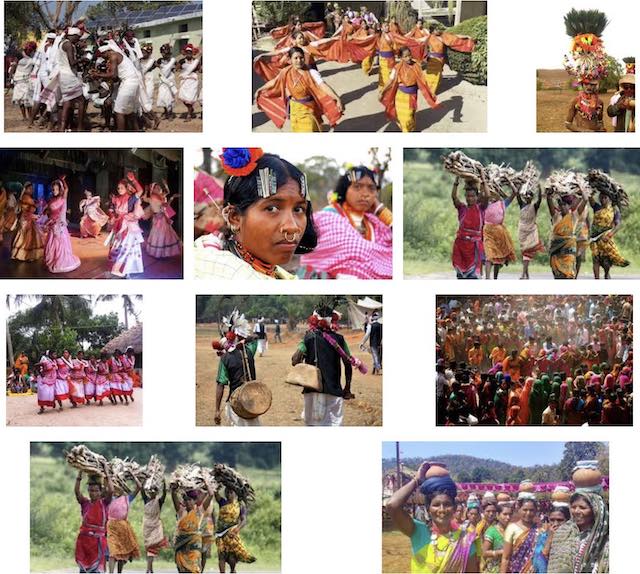
Indian online periodicals and platforms | Images view >>
~ ~ ~
Personalize your CustomSearch by combining other search words >>
(e.g. name of a tribal community and region, a craft, or dance and puppetry)
Research the above issues with the help of Shodhganga: A reservoir of theses from universities all over India, made available under Open Access >>
Note: hyperlinks and quotes are meant for fact-checking and information purposes only | Disclaimer >>
“If we take action, the right action – as the report [on Biological Diversity] proposes – we can transition to a sustainable planet.” […] Many good things are happening around the world and these should be celebrated and encouraged […] We have to act now. It is not too late. Otherwise, our children and grandchildren will curse us because we will leave behind a polluted, degraded and unhealthy planet.” – Elizabeth Maruma Mrema, executive secretary, UN Convention on Biological Diversity – “Extinction: Urgent change needed to save species, says UN”, BBC News, 15 September 2020 >>
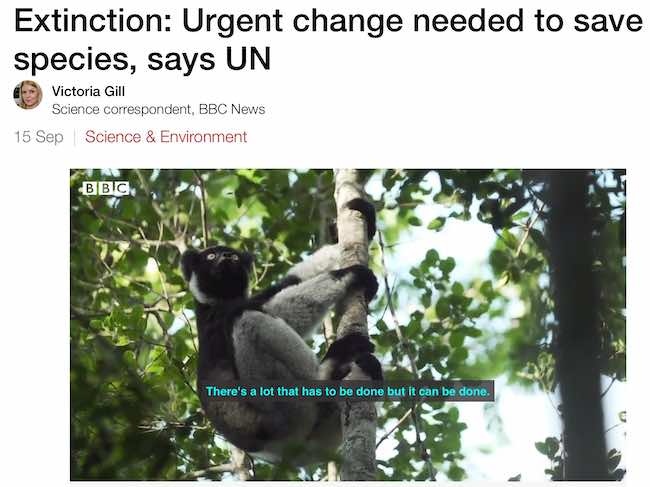
Watch the video on BBC News | More about Biodiversity in India >>
For additional learning resources visit the website of the Centre for Science and Environment (CSE), “a public interest research and advocacy organisation based in New Delhi”:
Communication for Awareness
CSE’s publications and informational products have been its strength and they have always combined research and readability to get the message across.
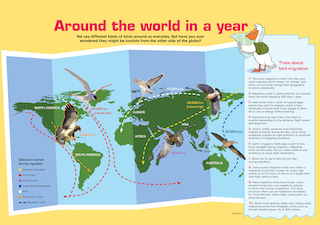
CSE’s tools for awareness raising are periodicals, publications, films/short spots, briefing papers, exhibitions, posters and other products. CSE’s informational products reach people in more diverse ways such as features service, website and e-news bulletins. […]
Source: About CSE
URL: https://www.cseindia.org
Date Visited: 10 July 2022
